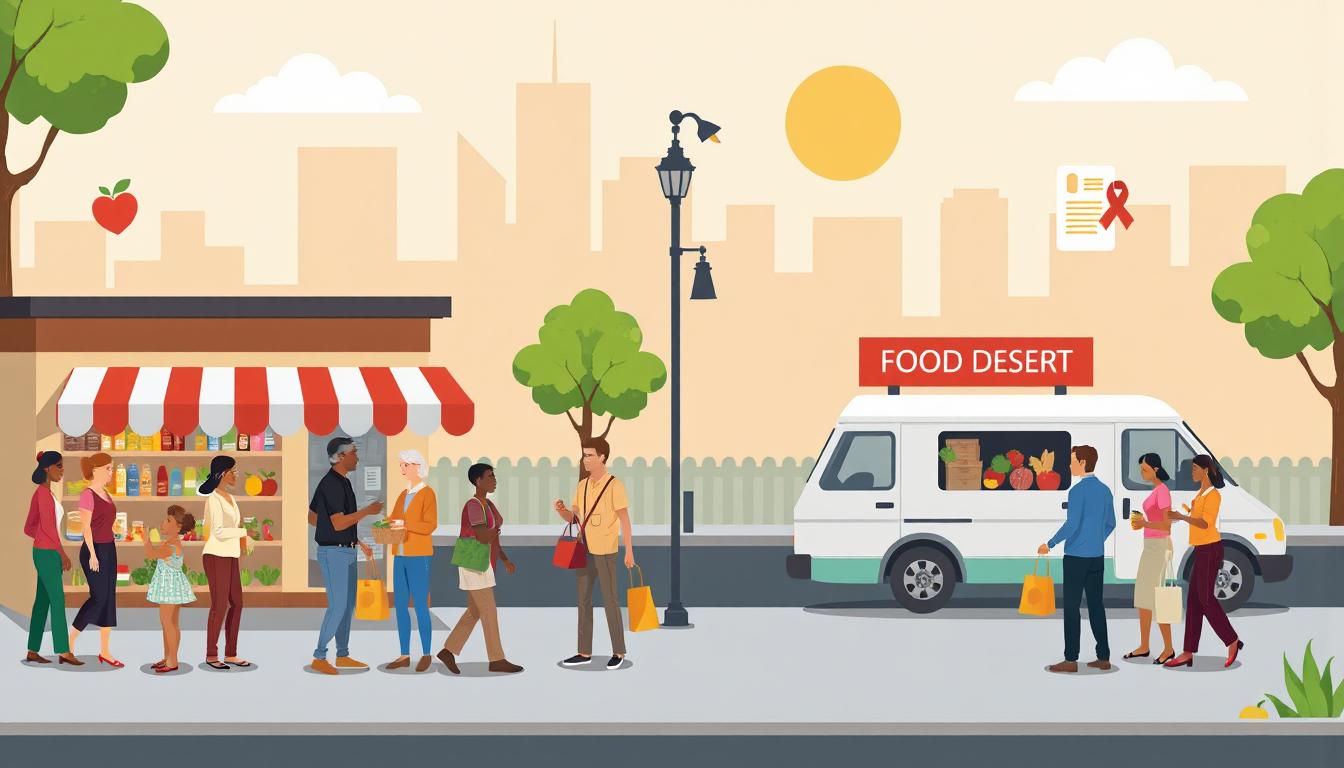Welcome to the world of food deserts and their impact on obesity! Have you ever wondered why some communities struggle to access fresh and healthy foods? In this journey, we will explore how food deserts play a key role in shaping eating habits and contributing to the obesity epidemic. Get ready to uncover the connection between lack of access to nutritious options and poor health outcomes. By understanding the challenges posed by food deserts, we can work together to find solutions that promote healthier lifestyles and combat obesity. So, grab a seat and let’s delve into this important issue that affects millions of people worldwide. Together, we can make a difference in creating a healthier and happier future for all!
Understanding the Link Between Obesity and Food Deserts
Have you ever wondered why obesity rates are higher in areas where access to fresh and healthy foods is limited? Well, that’s where the concept of food deserts comes into play. Food deserts are areas where residents have limited access to affordable and nutritious food options, often resulting in a reliance on unhealthy fast food and processed snacks.
Studies have shown that individuals living in food deserts are more likely to struggle with obesity due to the lack of access to fresh fruits, vegetables, and lean proteins. Without easy access to these essential food groups, people tend to opt for calorie-dense, nutrient-poor options that contribute to weight gain and other health issues.
By understanding the link between food deserts and obesity, we can start to address this issue by advocating for increased access to healthy foods in underserved communities. Remember, making small changes in your diet can have a big impact on your health!
Impact of Food Deserts on Healthy Eating Habits
Hey there! Let’s chat about how food deserts can affect our healthy eating habits. Picture this: you live in a neighborhood where the closest grocery store is miles away, and the only options nearby are fast food joints or convenience stores with limited fresh produce. It can be tough to make nutritious choices when healthy food is hard to come by.
Research shows that people living in food deserts are more likely to rely on processed and unhealthy foods, leading to weight gain and other health issues. When fruits, vegetables, and whole grains are scarce, it’s a real challenge to maintain a balanced diet.
But fear not! By being mindful of your choices, planning ahead, and seeking out community resources like farmers’ markets or food pantries, you can still eat well even in a food desert. Remember, small changes can make a big difference in your health!
Solutions to Combating Obesity in Food Deserts
Hey there! So, you might be wondering how we can tackle the issue of obesity in food deserts, right? Well, fear not, because there are definitely some solutions out there! One key approach is to increase access to fresh and healthy foods in these underserved areas. This can be done through initiatives like mobile farmers markets, community gardens, and partnerships with local grocery stores.
Another important strategy is to focus on education and awareness about healthy eating habits. By providing nutrition classes, cooking workshops, and resources on how to make healthier food choices, we can empower individuals to take control of their diets and overall health.
Remember, small changes can make a big impact, so don’t underestimate the power of starting with one step at a time towards a healthier lifestyle!
“`html
Hey there! So, you might be wondering how we can tackle the issue of obesity in food deserts, right? Well, fear not, because there are definitely some solutions out there! One key approach is to increase access to fresh and healthy foods in these underserved areas. This can be done through initiatives like mobile farmers markets, community gardens, and partnerships with local grocery stores.
Another important strategy is to focus on education and awareness about healthy eating habits. By providing nutrition classes, cooking workshops, and resources on how to make healthier food choices, we can empower individuals to take control of their diets and overall health.
Remember, small changes can make a big impact, so don’t underestimate the power of starting with one step at a time towards a healthier lifestyle!
“`
Heading V: Community Initiatives and Programs Addressing Food Deserts
In the fight against food deserts, communities are stepping up with innovative initiatives and programs to improve access to healthy foods. From mobile farmers markets to community gardens, these initiatives are making a real difference in combating obesity and promoting better nutrition.
**Here are some community-driven solutions that are making a positive impact:**
– **Mobile Farmers Markets:** Bringing fresh produce directly to neighborhoods in need, mobile farmers markets are a convenient way for residents to access nutritious foods.
– **Community Gardens:** Empowering residents to grow their own fruits and vegetables, community gardens not only provide fresh produce but also foster a sense of community and connection.
– **Food Co-ops:** By pooling resources and buying food in bulk, food co-ops make healthy options more affordable and accessible to all members of the community.
Through these community-driven initiatives, we can work together to create a healthier, more equitable food landscape for everyone. Let’s support and participate in these programs to make a positive impact in our communities!
VI. Role of Policy and Government in Addressing Food Deserts
Hey there, let’s talk about how policy and government play a crucial role in addressing food deserts! These areas where healthy, affordable food is hard to come by can have a significant impact on the health of a community. But fear not, there are ways our leaders can step in to help.
By implementing policies that promote access to fresh produce, support local farmers markets, and incentivize grocery stores to open in underserved neighborhoods, governments can make a real difference in combating obesity and promoting healthy eating habits. It’s all about creating a supportive environment where nutritious food is accessible to everyone.
So next time you’re thinking about how to tackle food deserts, remember that policy and government involvement can be a game-changer. Let’s work together to create a healthier, more equitable food landscape for all!
In conclusion, addressing food deserts is crucial in combating obesity and promoting healthy eating habits in communities. By recognizing the impact of limited access to fresh, nutritious foods, we can work towards creating sustainable solutions that benefit all individuals. Community initiatives and programs play a significant role in bridging the gap and providing resources for those in need. Furthermore, the involvement of policy and government in implementing strategies to increase access to healthy food options is essential for long-term change. As we move forward, it is important to support and participate in these efforts to create a healthier, more equitable environment for everyone. Remember, every small step towards addressing food deserts can make a big difference in improving overall health and well-being. Let’s work together to create a future where everyone has access to nutritious food options.


